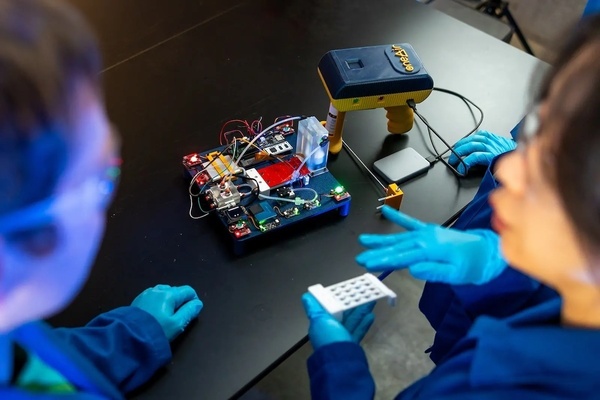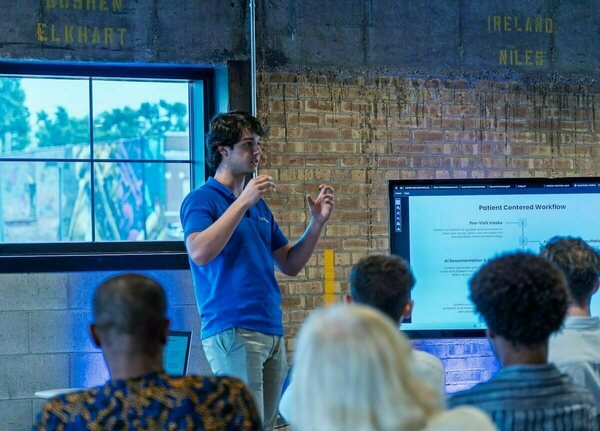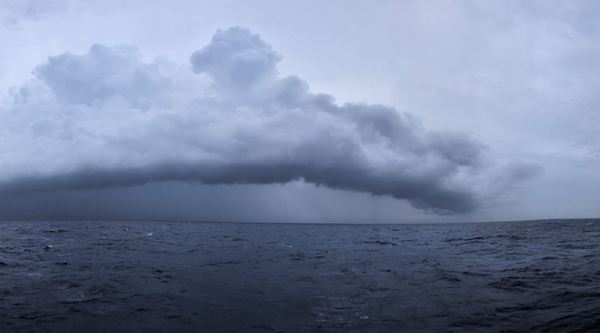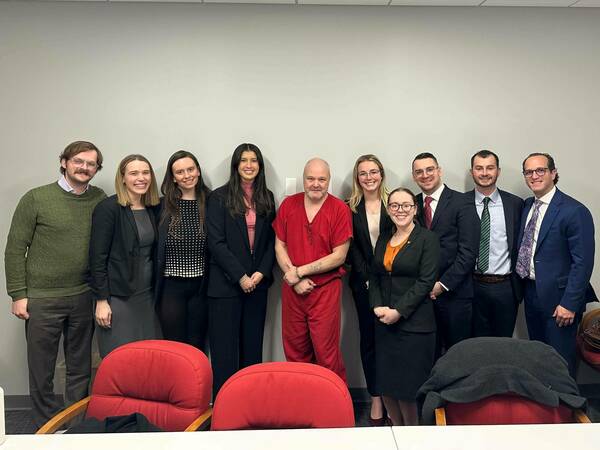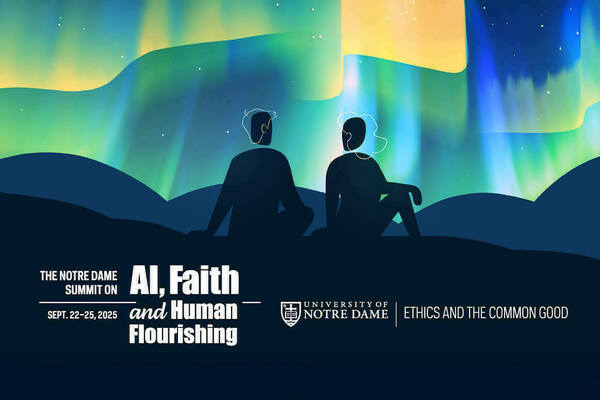Notre Dame Launches Sensor Initiative to Combat Bird Flu, Opioid Crisis

From the spread of dangerous pathogens like avian influenza (bird flu) to the devastating toll of narcotics like fentanyl, many of today’s public health threats share a common need: better, faster detection.
To meet this need, Notre Dame Research (NDR) has launched the ND Sensor Initiative (NDSI). An interdisciplinary effort to develop and deploy advanced sensor technologies that can save lives and protect communities, the initiative unites researchers from across the University to create precise, rapid, and low-cost tests for emerging threats.
"Whether we are facing emerging diseases, dangerous drugs, or chemical emergencies, these are all challenges that can benefit from superior sensor technology," said Nosang V. Myung, director of the new initiative.
Myung, the Bernard Keating-Crawford Professor of Engineering, explained, "Improvements over the past ten years mean that precise, powerful, and low-cost tests can make a difference for public health by empowering affected people to act quickly. Notre Dame is a leading source for developing these crucial analytical tools."

A collaboration between the Berthiaume Institute for Precision Health (BIPH), the College of Science, the College of Engineering, and NDR, the NDSI is led by a team of distinguished faculty, bringing together existing University strengths to be a force for good in the world.
Myung, a Fellow of the National Academy of Inventors, will lead the NDSI. The leadership team also includes Marya Lieberman, the Nancy Dee Professor of Cancer Research in the Department of Chemistry and Biochemistry, as associate director, and Matthew Webber, acting director of BIPH and the Keating-Crawford Collegiate Professor in the Department of Chemical and Biomolecular Engineering, as co-principal investigator.
Two Critical Fronts
The initiative will focus its expertise on two immediate and widespread crises:
Avian Influenza (Bird Flu): Myung, a leading researcher in the field, previously developed a powerful sensor with support from the U.S. National Science Foundation that effectively detects avian influenza. The goal of this technology is to shift from a system where farmers send samples to distant labs—a process that can take days—to one where on-site sensors provide immediate results. This dramatic reduction in response time can protect the health of animals and people while securing the livelihoods of farmers.
The Opioid Epidemic: More than 100,000 overdose deaths occur annually in the U.S., four out of five of which involve opioids. The crisis has strained public health systems and exacerbated social issues like homelessness and mental illness. A major challenge for first responders is the constantly changing landscape of synthetic drugs. Current methods, such as infrared spectroscopy, are often not sensitive enough to detect these trace components, making triage difficult and dangerous.
This effort will build upon a recent investment by the University-wide Bioengineering and Life Sciences (BELS) Initiative to launch Notre Dame Serving Community Analytical Needs (ND-SCAN). Led by Myung and Lieberman, ND-SCAN will establish a new 1,000-square-foot laboratory in McCourtney Hall for the development of transformative sensor technologies that can be used in the field by law enforcement, healthcare providers, and harm reduction groups, in collaboration with community partners.
“To work on a crisis like this, you have to break down the distinction between the lab and the community,” Lieberman explained. “We gain community impact by working closely with community members and local government. We start with social needs and community questions, so the arc of our projects will end in real-world impact, not just academic papers.”
Contact
Erin Fennessy / Writing Program Manager
Notre Dame Research / University of Notre Dame
efenness@nd.edu / research.nd.edu / @UNDResearch
About Notre Dame Research
The University of Notre Dame is a private research and teaching university inspired by its Catholic mission. Located in South Bend, Indiana, its researchers are advancing human understanding through research, scholarship, education, and creative endeavor in order to be a repository for knowledge and a powerful means for doing good in the world. For more information, please see NDR's website or NDR's LinkedIn.
Latest Research
- Fighting for Better Virus DetectionAn electronic nose developed by Notre Dame researchers is helping sniff out bird flu biomarkers for faster detection and fewer sick birds. Read the story
- Notre Dame’s seventh edition of Race to Revenue culminates in Demo Day, a celebration of student and alumni entrepreneurship…
- Managing director brings interdisciplinary background to Bioengineering & Life Sciences InitiativeThis story is part of a series of features highlighting the managing directors of the University's strategic initiatives. The managing directors are key (senior) staff members who work directly with the…
- Monsoon mechanics: civil engineers look for answers in the Bay of BengalOff the southwestern coast of India, a pool of unusually warm water forms, reaching 100 feet below the surface. Soon after, the air above begins to churn, triggering the summer monsoon season with its life-giving yet sometimes catastrophic rains. To better understand the link between the formation of the warm pool and the monsoon’s onset, five members of the University of Notre Dame’s Environmental Fluid Mechanics Laboratory set sail into the Bay of Bengal aboard the Thomas G. Thompson, a 274-foot vessel for oceanographic research.
- Exoneration Justice Clinic Victory: Jason Hubbell’s 1999 Murder Conviction Is VacatedThis past Friday, September 12, Bartholomew County Circuit Court Judge Kelly S. Benjamin entered an order vacating Exoneration Justice Clinic (EJC) client Jason Hubbell’s 1999 convictions for murder and criminal confinement based on the State of Indiana’s withholding of material exculpatory evidence implicating another man in the murder.
- Notre Dame to host summit on AI, faith and human flourishing, introducing new DELTA frameworkThe Institute for Ethics and the Common Good and the Notre Dame Ethics Initiative will host the Notre Dame Summit on AI, Faith and Human Flourishing on the University’s campus from Monday, Sept. 22 through Thursday, Sept. 25. This event will draw together a dynamic, ecumenical group of educators, faith leaders, technologists, journalists, policymakers and young people who believe in the enduring relevance of Christian ethical thought in a world of powerful AI.







